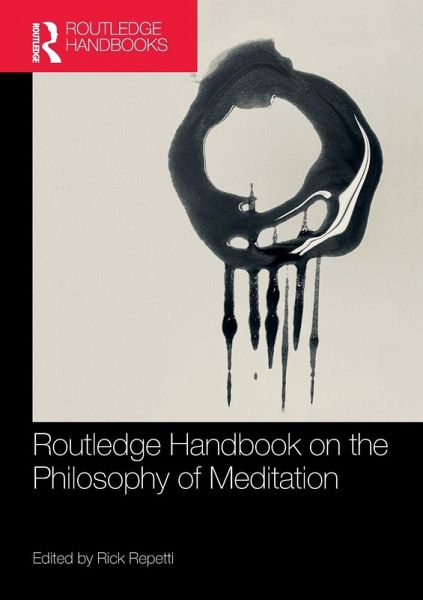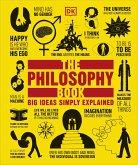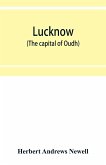Routledge Handbook on the Philosophy of Meditation
Herausgeber: Repetti, Rick
Routledge Handbook on the Philosophy of Meditation
Herausgeber: Repetti, Rick
- Broschiertes Buch
- Merkliste
- Auf die Merkliste
- Bewerten Bewerten
- Teilen
- Produkt teilen
- Produkterinnerung
- Produkterinnerung
This Handbook provides a comprehensive overview & analysis of the state of the field of the philosophy of meditation. It will serve as textbook reading in courses in philosophy of mind, consciousness, selfhood/personhood, metaphysics, or phenomenology.
Andere Kunden interessierten sich auch für
![The Philosophy Book The Philosophy Book]() DkThe Philosophy Book18,99 €
DkThe Philosophy Book18,99 €![The Genealogy Of Morals The Genealogy Of Morals]() Friedrich Wilhelm NietzscheThe Genealogy Of Morals23,99 €
Friedrich Wilhelm NietzscheThe Genealogy Of Morals23,99 €![Nurturing the Nurturers; Healing the Planet Nurturing the Nurturers; Healing the Planet]() Leon PetchkovskyNurturing the Nurturers; Healing the Planet18,99 €
Leon PetchkovskyNurturing the Nurturers; Healing the Planet18,99 €![Routledge Handbook of Religions in Asia Routledge Handbook of Religions in Asia]() Routledge Handbook of Religions in Asia75,99 €
Routledge Handbook of Religions in Asia75,99 €![The Wheel of Fortune The Wheel of Fortune]() Mahatma GandhiThe Wheel of Fortune19,99 €
Mahatma GandhiThe Wheel of Fortune19,99 €![Hutcheson Hutcheson]() Francis HutchesonHutcheson37,99 €
Francis HutchesonHutcheson37,99 €![Lucknow (the capital of Oudh) an illustrated guide to places of interest, with history and map Lucknow (the capital of Oudh) an illustrated guide to places of interest, with history and map]() Herbert Andrews NewellLucknow (the capital of Oudh) an illustrated guide to places of interest, with history and map19,99 €
Herbert Andrews NewellLucknow (the capital of Oudh) an illustrated guide to places of interest, with history and map19,99 €-
-
-
This Handbook provides a comprehensive overview & analysis of the state of the field of the philosophy of meditation. It will serve as textbook reading in courses in philosophy of mind, consciousness, selfhood/personhood, metaphysics, or phenomenology.
Hinweis: Dieser Artikel kann nur an eine deutsche Lieferadresse ausgeliefert werden.
Hinweis: Dieser Artikel kann nur an eine deutsche Lieferadresse ausgeliefert werden.
Produktdetails
- Produktdetails
- Verlag: Taylor & Francis
- Seitenzahl: 410
- Erscheinungstermin: 4. Oktober 2024
- Englisch
- Abmessung: 278mm x 211mm x 27mm
- Gewicht: 1010g
- ISBN-13: 9780367649746
- ISBN-10: 0367649748
- Artikelnr.: 71546128
- Herstellerkennzeichnung
- Libri GmbH
- Europaallee 1
- 36244 Bad Hersfeld
- gpsr@libri.de
- Verlag: Taylor & Francis
- Seitenzahl: 410
- Erscheinungstermin: 4. Oktober 2024
- Englisch
- Abmessung: 278mm x 211mm x 27mm
- Gewicht: 1010g
- ISBN-13: 9780367649746
- ISBN-10: 0367649748
- Artikelnr.: 71546128
- Herstellerkennzeichnung
- Libri GmbH
- Europaallee 1
- 36244 Bad Hersfeld
- gpsr@libri.de
Rick Repetti is Professor of Philosophy at the City University of New York (CUNY), USA, and author of four books, including Buddhism, Meditation, and Free Will (Routledge 2018), and dozens of articles and chapters on meditation and free will. He is an APPA-certified philosophical counselor, podcaster, and 4th-Dan Shotokan blackbelt, and has taught meditation and yoga since the mid-1970s.
Introduction: Is meditation philosophy? PART I: Meditation and philosophy 1 Skeptical doubts about meditation as philosophy 2 The philosophy of meditation: The spoken Tao 3 Meditation and the paradox of self-consciousness 4 The relation between meditation and analytic philosophy 5 Engaging metacognitive practices: On the uses (and possible abuse) of meditation in philosophy 6 Differences and interaction between meditative cultivation and philosophical thought/insight in early and Therav
da Buddhism 7 The necessity of meditation in Upani
adic tur
ya and Yog
c
ra amala vijñana PART II: Meditation and epistemology 8 Meditation, nonconceptuality, and the reflexive structure of consciousness 9 The experience of presence: Meditation and the nature of consciousness 10 Meditation as cultivating knowledge-how 11 How meditation changes the brain: A neurophilosophical and pragmatic account 12 How a philosophy of meditation can explore the deep connections between mindfulness and contemplative wisdom 13 Psychedelics and meditation: A neurophilosophical perspective PART III: Meditation and metaphysics 14 Philosophy without a philosopher: An
tman as a special case of dependent arising 15 Meditative experience and the plasticity of self-experience 16 The self: What does mindfulness meditation reveal about it? 17 Control, anxiety, and the progressive detachment from the self PART IV: Meditation and values 18 Is there a global norm in favor of global attentiveness? 19 Meditation in the context of a naturalized eudaimonic Buddhism PART V: Meditation and phenomenology 20 The phenomenology of meditation: An Advaita approach 21 What is meditation good for?: Reflections on the use of meditation in the study of consciousness 22 Bare attention, dereification, and meta-awareness in mindfulness: A phenomenological critique 23 Consciousness, content, and cognitive attenuation: A neurophenomenological perspective PART VI: Meditation in Greco-Roman and Judeo-Christian traditions 24 Prosochê as Stoic mindfulness 25 The philosophical presuppositions of Christian meditation: Theo-philosophical anthropology and its corresponding participatory ontology 26 The end of man: Philosophical consummation in Jewish meditative tradition
da Buddhism 7 The necessity of meditation in Upani
adic tur
ya and Yog
c
ra amala vijñana PART II: Meditation and epistemology 8 Meditation, nonconceptuality, and the reflexive structure of consciousness 9 The experience of presence: Meditation and the nature of consciousness 10 Meditation as cultivating knowledge-how 11 How meditation changes the brain: A neurophilosophical and pragmatic account 12 How a philosophy of meditation can explore the deep connections between mindfulness and contemplative wisdom 13 Psychedelics and meditation: A neurophilosophical perspective PART III: Meditation and metaphysics 14 Philosophy without a philosopher: An
tman as a special case of dependent arising 15 Meditative experience and the plasticity of self-experience 16 The self: What does mindfulness meditation reveal about it? 17 Control, anxiety, and the progressive detachment from the self PART IV: Meditation and values 18 Is there a global norm in favor of global attentiveness? 19 Meditation in the context of a naturalized eudaimonic Buddhism PART V: Meditation and phenomenology 20 The phenomenology of meditation: An Advaita approach 21 What is meditation good for?: Reflections on the use of meditation in the study of consciousness 22 Bare attention, dereification, and meta-awareness in mindfulness: A phenomenological critique 23 Consciousness, content, and cognitive attenuation: A neurophenomenological perspective PART VI: Meditation in Greco-Roman and Judeo-Christian traditions 24 Prosochê as Stoic mindfulness 25 The philosophical presuppositions of Christian meditation: Theo-philosophical anthropology and its corresponding participatory ontology 26 The end of man: Philosophical consummation in Jewish meditative tradition
Introduction: Is meditation philosophy? PART I: Meditation and philosophy 1 Skeptical doubts about meditation as philosophy 2 The philosophy of meditation: The spoken Tao 3 Meditation and the paradox of self-consciousness 4 The relation between meditation and analytic philosophy 5 Engaging metacognitive practices: On the uses (and possible abuse) of meditation in philosophy 6 Differences and interaction between meditative cultivation and philosophical thought/insight in early and Therav
da Buddhism 7 The necessity of meditation in Upani
adic tur
ya and Yog
c
ra amala vijñana PART II: Meditation and epistemology 8 Meditation, nonconceptuality, and the reflexive structure of consciousness 9 The experience of presence: Meditation and the nature of consciousness 10 Meditation as cultivating knowledge-how 11 How meditation changes the brain: A neurophilosophical and pragmatic account 12 How a philosophy of meditation can explore the deep connections between mindfulness and contemplative wisdom 13 Psychedelics and meditation: A neurophilosophical perspective PART III: Meditation and metaphysics 14 Philosophy without a philosopher: An
tman as a special case of dependent arising 15 Meditative experience and the plasticity of self-experience 16 The self: What does mindfulness meditation reveal about it? 17 Control, anxiety, and the progressive detachment from the self PART IV: Meditation and values 18 Is there a global norm in favor of global attentiveness? 19 Meditation in the context of a naturalized eudaimonic Buddhism PART V: Meditation and phenomenology 20 The phenomenology of meditation: An Advaita approach 21 What is meditation good for?: Reflections on the use of meditation in the study of consciousness 22 Bare attention, dereification, and meta-awareness in mindfulness: A phenomenological critique 23 Consciousness, content, and cognitive attenuation: A neurophenomenological perspective PART VI: Meditation in Greco-Roman and Judeo-Christian traditions 24 Prosochê as Stoic mindfulness 25 The philosophical presuppositions of Christian meditation: Theo-philosophical anthropology and its corresponding participatory ontology 26 The end of man: Philosophical consummation in Jewish meditative tradition
da Buddhism 7 The necessity of meditation in Upani
adic tur
ya and Yog
c
ra amala vijñana PART II: Meditation and epistemology 8 Meditation, nonconceptuality, and the reflexive structure of consciousness 9 The experience of presence: Meditation and the nature of consciousness 10 Meditation as cultivating knowledge-how 11 How meditation changes the brain: A neurophilosophical and pragmatic account 12 How a philosophy of meditation can explore the deep connections between mindfulness and contemplative wisdom 13 Psychedelics and meditation: A neurophilosophical perspective PART III: Meditation and metaphysics 14 Philosophy without a philosopher: An
tman as a special case of dependent arising 15 Meditative experience and the plasticity of self-experience 16 The self: What does mindfulness meditation reveal about it? 17 Control, anxiety, and the progressive detachment from the self PART IV: Meditation and values 18 Is there a global norm in favor of global attentiveness? 19 Meditation in the context of a naturalized eudaimonic Buddhism PART V: Meditation and phenomenology 20 The phenomenology of meditation: An Advaita approach 21 What is meditation good for?: Reflections on the use of meditation in the study of consciousness 22 Bare attention, dereification, and meta-awareness in mindfulness: A phenomenological critique 23 Consciousness, content, and cognitive attenuation: A neurophenomenological perspective PART VI: Meditation in Greco-Roman and Judeo-Christian traditions 24 Prosochê as Stoic mindfulness 25 The philosophical presuppositions of Christian meditation: Theo-philosophical anthropology and its corresponding participatory ontology 26 The end of man: Philosophical consummation in Jewish meditative tradition








